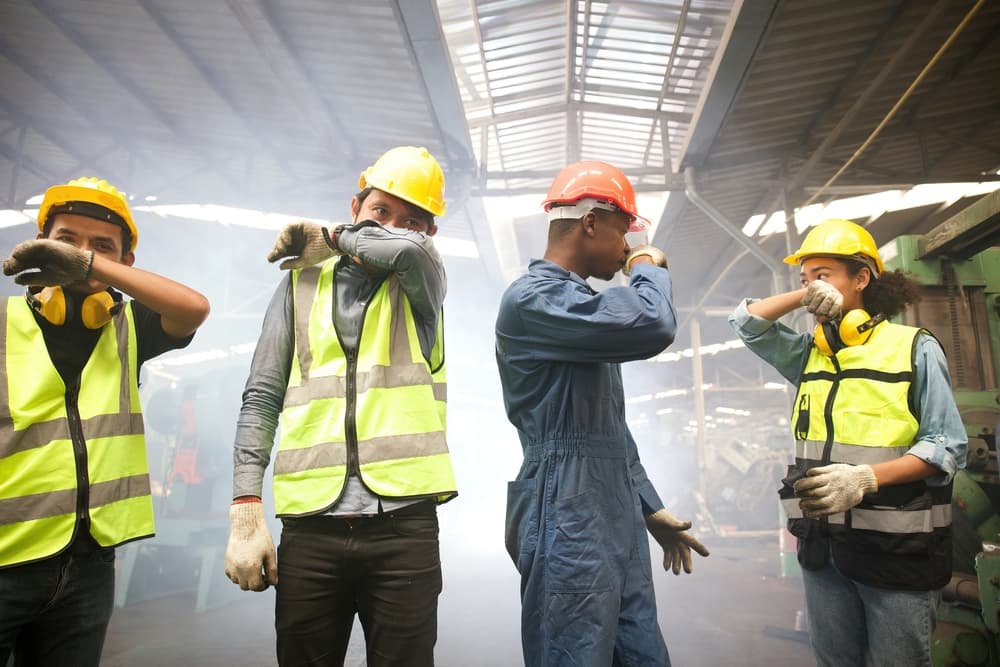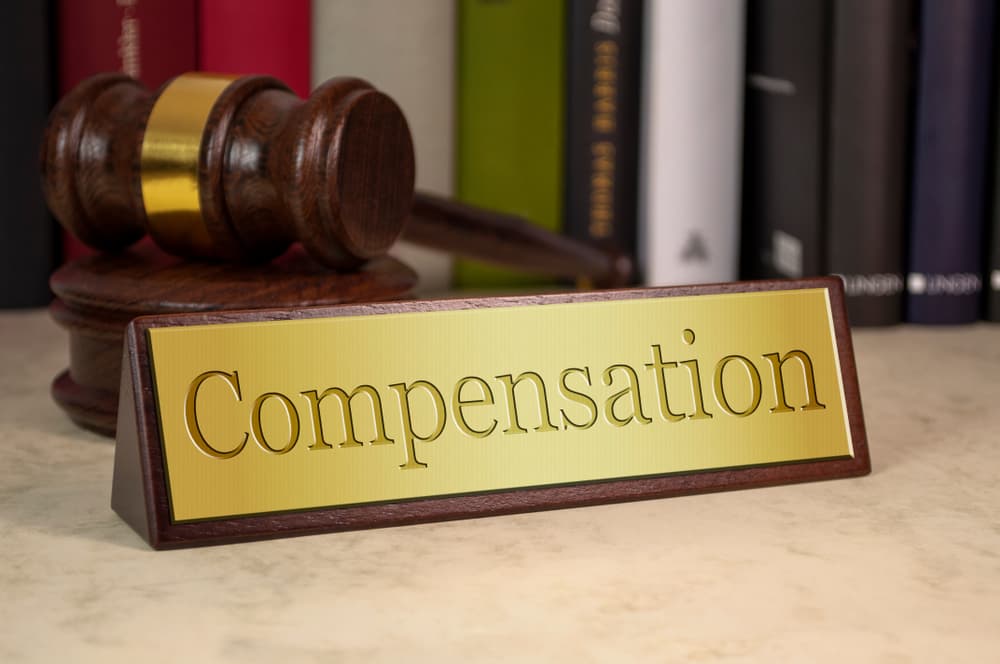Being exposed to diesel particulate matter, or DPM, can bring about serious short-term and long-term consequences for workers. In addition, workers’ prolonged exposure to diesel fumes may cause them to become distracted, jeopardizing their ability to perform precise work correctly.
According to the Occupational Safety and Health Administration, or OSHA, high concentrations of DPM are often present on earth-moving equipment, generators, trucks, and compressors, resulting in prolonged exposure to DPM and serious medical complications for operators, including ongoing headaches and nose or eye irritation. An individual who suffers prolonged exposure to DPM may also experience cardiovascular or cardiopulmonary disease, in addition to lung cancer.
Employers are responsible for using the proper engineering controls to limit the exposure of their employees to DPM. OSHA has also recommended using various administrative controls to change the way that individual workers perform their job duties and to aid in eliminating DPM.
If you suffered short-term or chronic health problems as a result of exposure to diesel exhaust fumes, you may be eligible to file a claim for various workers’ compensation benefits with your employer’s insurance company. Additionally, you may be able to file a third-party personal injury claim against a negligent third-party for various types of monetary recovery and damages.
As soon as possible after becoming aware of your health issues, it is important that you speak with a skilled San Antonio workers’ compensation attorney. Your attorney can promptly begin an investigation into your employer’s practices and determine your eligibility for filing a workers’ compensation claim.
If you are eligible to move forward with a claim, your lawyer can help you obtain the necessary documents and submit those documents to your employer’s insurance company.
Additionally, your lawyer can determine your eligibility for filing a third-party personal injury claim based upon negligence and can handle all communications with insurance company adjusters. Furthermore, your lawyer may be able to take your case to a civil jury trial or alternative dispute resolution proceeding for a favorable result. Your attorney will be your advocate every step of the way and can answer your legal questions so that you have the information necessary to make intelligent and informed decisions at every stage of the legal proceedings.
Who Can File a Claim for Workers’ Compensation Benefits?

Individuals who are employees may be eligible to file a claim for workers’ compensation benefits if they suffer an injury, illness, or other medical complication while working at their job and while performing a job duty. Although employees are eligible for these benefits, individuals who work as independent contractors are not typically eligible to bring a claim for workers’ compensation benefits. In some cases, it can be difficult to determine whether a worker is an employee or an independent contractor. In my situation, an employee is someone who receives a W-2 tax form while an independent contractor receives a form 1099 at the end of the tax year.
Additionally, workers’ compensation benefits are ordinarily available to injured workers regardless of fault. Therefore, when it comes to qualifying for these benefits, it does not typically matter how your accident or occurrence happened or who was at fault. Rather, to qualify for benefits, you must ordinarily have suffered injuries while working at your job and while performing a job duty.
If you suffered exposure to toxic diesel exhaust fumes while working in an oilfield, you may be eligible to file a claim for workers’ compensation benefits with your employer’s insurance company. If so, your attorney can properly investigate the circumstances of your medical condition, determine your eligibility for filing a claim, and submit the necessary documents to the insurance company. Then your lawyer can pursue the benefits you deserve and, if necessary, represent you at a benefits hearing.
Medical Complications That May Result from Exposure to Toxic Diesel Exhaust Fumes
When individuals experience exposure to toxic diesel exhaust fumes, they may suffer very serious injuries, illnesses, and medical complications. Some of the most common complications that workers may suffer include:
- Nose and eye irritation
- Prolonged nausea and headaches
- Respiratory disease and breathing difficulties
Also, some occupations are especially prone to DPM exposure. Those occupations include all of the following:
- Miners
- Oilfield workers
- Bus maintenance garage workers
- Construction workers,
- Motor vehicle operators
- Material handling operators
- Bridge and tunnel workers
- Railroad workers
If you have experienced health complications as a result of exposure to diesel exhaust fumes while on the job, always consult a knowledgeable workers’ compensation attorney near you right away. You should also focus your attention on getting the medical treatment that you need in order to recover from your injury or illness. In some cases, a medical provider may refer you to a specialist for additional treatment. By treating continuously for your injuries, you increase your eligibility for obtaining favorable workers’ compensation benefits or third-party benefits in your case.
Recoverable Workers’ Compensation Benefits

When an individual successfully files a workers’ compensation claim, they may be eligible to receive various types of benefits. The types and amounts of workers’ compensation benefits that an individual may recover are very case-specific and will depend primarily upon the nature and extent of their illness or injury, their medical costs, and the amount of time that they lost from work as a result of their medical complications.
First, an oilfield worker who is exposed to diesel exhaust fumes may be able to receive compensation for all their related medical costs. Additionally, they may be able to recover a portion of their lost wages if they were unable to work due to prolonged exposure.
In some cases, chronic exposure to diesel exhaust fumes may prevent a worker from continuing in their current occupation. In that situation, a worker may be able to receive vocational rehabilitation benefits. The purpose of these benefits is to get a worker back into the workforce so that they can provide for themselves again.
Finally, if a medical provider determines, based upon a reasonable to great medical certainly, that an oilfield worker suffered a permanent medical complication that is unlikely to get better, then the worker may be eligible for various types of permanency benefits. Specifically, a medical provider may be able to examine the oilfield worker and issue a rating expressed as a percentage of impairment to one or more body parts. This percentage of impairment will then translate into a certain number of weeks of monetary compensation that the oilfield worker may be eligible to receive.
Depending upon the nature and extent of your medical complications, and whether you suffered a permanent complication, a healthcare provider can determine the types and amounts of monetary benefits you may be eligible to recover in your case. Your lawyer can then submit the necessary claim documents and work to achieve the best possible case result on your behalf.
Eligibility to File a Third-party Personal Injury Claim or Lawsuit
In addition to filing a claim for workers’ compensation benefits, oilfield workers may be able to file a third-party claim or a lawsuit against an at-fault person or entity who brought about their chronic fume exposure. Ordinarily, an injured worker cannot file a personal injury claim or lawsuit against their employer. After all, that is the primary purpose of the Workers’ Compensation System.
However, an injured worker may be eligible to file a personal injury claim or lawsuit based upon negligence against a third-party that caused or contributed to their medical complications. For example, they may pursue compensation from a work contractor or foreman who failed to properly monitor or supervise work conditions. Additionally, they can take legal action against a third-party repair facility that failed to undertake the necessary repair work or who made repairs in a negligent or careless manner.
In a third-party personal injury case, the victim must satisfy several legal elements in order to be eligible for monetary compensation. However, the at-fault party does not have to satisfy any legal elements and has no burden of proof in the case. First, they must show that the at-fault party owed them a duty of reasonable care which they subsequently violated. Second, the victim must establish that their medical conditions are a direct result of the at-fault party’s careless, negligent, or reckless behavior.
A skilled workers’ compensation attorney in your area can determine your eligibility for filing a third-party claim and work to satisfy the legal burden of proof in your case, if necessary, by retaining one or more experts who may testify at a discovery deposition ordering some other litigation proceeding, such as a civil jury trial.
As part of a personal injury claim or lawsuit, an individual may qualify to recover various types of monetary damages. Sometimes, third-party insurance companies will reduce the amount of monetary compensation they offer the victim if the victim has already received monetary benefits through workers’ compensation. Nevertheless, injured or ill workers may be entitled to receive additional monetary damages, such as for future medical expenses, inconvenience, mental distress, pain and suffering, loss of spousal consortium, lost quality of life, or loss of the ability to use a body part.
Your attorney may be able to file a third-party personal injury claim on your behalf and aggressively negotiate with insurance company representatives. If the insurance company will not make you a fair monetary settlement offer, then your lawyer can threaten the insurance company with litigation in the court system and, if necessary, may actually file a lawsuit on your behalf directly against the third-party.
After filing a lawsuit, the at-fault party’s insurance company will retain a defense attorney who will then enter a formal appearance in the case. Once that step occurs, the court will typically enter a scheduling order which establishes various dates and deadlines that all of the parties must follow in the case, including a discovery completion deadline, a settlement conference date, and sometimes a jury trial date.
During litigation, the parties will take part in a process called discovery. Throughout the discovery stage of litigation, the parties will answer written interrogatories, continue exchanging documentation which may later serve as evidence in the case, and continue their settlement discussions. If the matter settles during litigation, the parties will not need to take their case any further. However, if the parties cannot resolve their case, the matter will typically proceed to a civil jury trial.
During a trial, the parties will introduce evidence to the jury, including medical records and medical bills, which the jury will evaluate. The parties may also call witnesses to the stand to testify. Once the trial is over, the jury will decide on the amount of monetary compensation to award the victim. Instead of taking the case to trial, however, the parties may consider alternative dispute resolution (ADR), such as mediation or binding arbitration.
Throughout the entire process, your attorney will do everything they can to maximize the compensation that you receive in terms of both workers’ compensation benefits, and if applicable, third-party damages.
Speak with an Experienced Workers’ Compensation Lawyer in Your Area Today
Working on an oil field, especially for a prolonged amount of time, can be very dangerous. Additionally, oilfield workers are prone to serious accidents, injuries, and health complications, from exposure to toxic fumes. If a medical provider determines that your health problems resulted from chronic fume exposure, it is important that you speak with a knowledgeable and compassionate workers’ compensation attorney in your jurisdiction right away.

Your personal injury lawyer can immediately investigate your medical condition and determine whether the condition likely resulted from your workplace. If so, your lawyer may be able to file a workers’ compensation claim for benefits and/or a third-party personal injury claim on your behalf.
Throughout the process, your attorney will do everything possible to maximize the monetary benefits and third-party damages as you recover in your case. Moreover, your lawyer can represent you at all legal proceedings, enter evidence on your behalf, and advocate for all your legal interests every step of the way.
